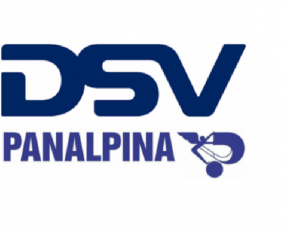
The DSV attempt to buy Panalpina has taken a slightly surprising but apparently definitive turn. DSV and Panalpina are to merge.
In a statement, both companies asserted that “DSV will offer 2.375 DSV shares for one Panalpina share”. This represents a price of CHF4.6bn (US$4.6bn) for Panalpina but also includes an agreement to change the name of DSV to DSV Panalpina A/S and to consider a seat on its board for the major shareholder of Panalpina, the Ernst Goehner Foundation. It also appears that certain HQ functions will be retained in Switzerland.
The joint statement from Panalpina and DSV commented that the “offer already has the support of shareholders representing 69.9% of the registered shares of Panalpina”.
The initial impression is that the Ernest Goehner Foundation has played a significant role in the latest deal. Not only has the Foundation achieved a high price for its investment in Panalpina, with the present offer being over 40% higher than the share price of Panalpina before the first DSV offer was made, but it has also achieved its objective of not selling its equity. Rather a new logistics company has emerged in which it is the largest shareholder with 11% of the equity. It may not have the controlling position that it had in the old Panalpina, however it clearly will have influence in the new company. The prospects of the new company are also likely to be better than that of Panalpina, and is possibly the most attractive logistics service provider in the world.
There are risks in this deal. The success of DSV in the merger of its previous acquisitions has been facilitated by the clarity of its management structure. With significant Panalpina influence in the new, merged company there is a possibility that this will be diluted.
None-the-less DSV-Panalpina will be an important logistics service provider in the global market. DSV states that it will probably be the second largest air freight forwarder in the world and the fourth largest sea freight forwarder. However, the new company is rather heavily exposed to European markets and is also dominated by freight forwarding with contract logistics being just 14% of sales.
The challenge now is for the new merged company to deliver the sort of integration performance that DSV’s management has delivered in the past.
The merger is expected to be implemented by the fourth quarter of 2019.
Source: Transport Intelligence, April 01, 2019
Author: Thomas Cullen